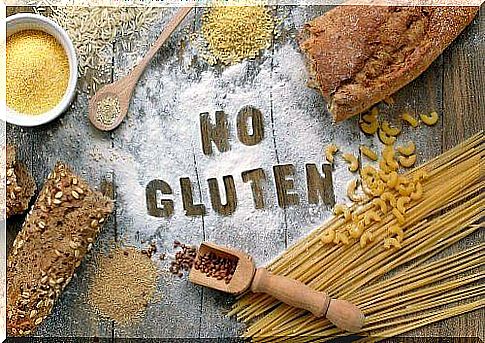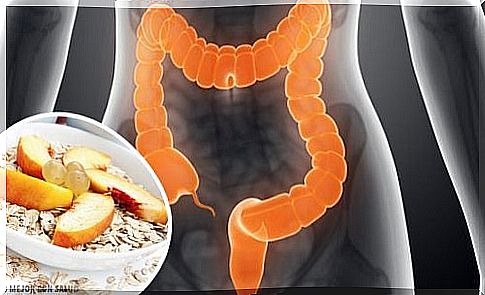Gluten-free Diet And Its Health Implications

Of course, practically every gluten-free diet is touted as offering amazing health benefits. However, you have to bear in mind that, as a rule, this has little to do with the truth.
It has even led to extensive debate among professionals as to whether a gluten-free diet really has any positive health effects or is just a new fashion and nothing else.
But despite the growing demand for gluten-free diets, the truth is, average people shouldn’t be following this type of diet. As long as their body tolerates gluten in the normal way, of course.
If you take a few minutes to read the rest of our today’s article, you will have a basic set of information on this subject. So we invite you to read!
Gluten-free diet for people who do not suffer from celiac disease
Nowadays, a gluten-free diet has become extremely popular with many people. Mainly due to the belief that eliminating this particular ingredient, which is gluten, can lead to weight loss or an improvement in your health. But it’s not true. You must remember that while gluten is not an essential protein for your body, eliminating it completely from your diet is not recommended. As long as you don’t have celiac disease, of course.
First of all, it should be made clear that some people may indeed have some gluten sensitivity or even intolerance. Of course, a physician-specialist should first diagnose the presence of such physiological disorders in them. For example, if you have been diagnosed with gluten intolerance, actually eliminating gluten from your diet will be an important step in improving your health.

In addition, a gluten-free diet is also beneficial for people suffering from inflammatory bowel diseases or any kind of autoimmune diseases. It is also a good solution for people suffering from various hormonal and even neurological disorders.
However, it should be remembered that only people with gluten intolerance or one of the health problems listed above should follow a gluten-free diet. Completely eliminating this nutrient from your food is simply inadvisable. Yet the reality around us and the popularity of gluten-free products only reflect the common belief based on myth.
Ultimately, the most important thing is to eat a balanced and well-balanced diet. It should include both plant and animal foods. As well as whole grains and dairy products. Unless there is a special medical condition to do so, do not blindly believe that a gluten-free diet will benefit you.
Gluten intolerance, aka celiac disease
For starters, the symptoms by which gluten intolerance can be detected are often associated with fairly common gastrointestinal problems. These symptoms include gas and gas, abdominal pain, diarrhea and constipation. In addition, there may also be skin problems, chronic fatigue or sleep disturbances.

One of the main characteristics of celiac sufferers is that it is really difficult for them to gain weight. This is because the villi of the small intestine are unable to absorb the nutrients from wheat products. Logically, this also means that they are unable to absorb the calories in these foods.
However, unnecessarily eliminating gluten-containing foods from your diet can cause you to lose control of your weight. What we mean by this is that you will simply gain weight faster than if you eat normally and also eat gluten-based foods.
Gluten sensitivity for reasons other than celiac disease
The disorder described in this section covers from 1% to 6% of the population, depending on the test results and the criteria used. To deal effectively with this type of problem, doctors recommend that people who are sensitive to gluten also eliminate gluten from their diet.
Irritable bowel syndrome is often associated with gluten sensitivity, despite the lack of the hallmarks of celiac disease. In total, it affects about 15% of the human population. This health problem manifests as abdominal pain, diarrhea and flatulence. A gluten-free diet can help reduce these adverse symptoms and pain.

On the other hand, some people are allergic to certain proteins in wheat. However, the degree of hypersensitivity and its symptoms may differ between children and adults. This means that in the case of children, we are more often dealing with the more classic food allergy. Fortunately, it quite often disappears after reaching adolescence or adulthood.
Overall, these types of food allergy have a wide variety of symptoms, ranging from itching to intestinal discomfort. Because these conditions are difficult to diagnose, the only treatment option is to eliminate wheat and its derivatives from your diet. And that could mean that a gluten-free diet may be a good option for you.








